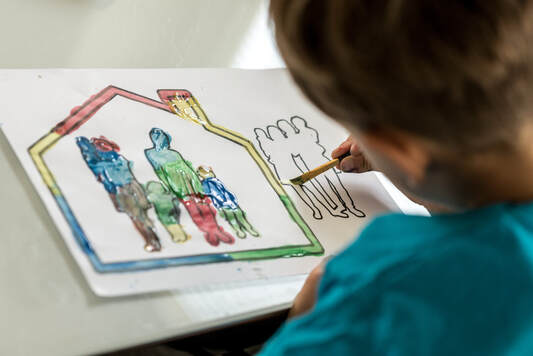Services

Foster Care Program
Specialized Therapeutic Foster Care Program
This level of care is community based and offers services to children in foster homes to allow for development growth and parental attachment. Therapeutic foster children receive clinical services regularly from a therapist who treats the child in the home, school, and community, under the direct supervision and guidance of a psychiatrist. In short, treatment is finite with continuous consideration to the child’s permanency plan with gradual progression towards this goal. Permanency plans could include reunification, adoption, relative care placement, long-term foster care, or independent living.
Supportive Foster Care Program
The Supportive Foster Care Program is a designated “level of care” to serve: (a) Children who can not be appropriately served through regular foster care, or (b) Children whom are “stepping down” from a higher level of care (i.e. residential treatment). (c) Children who are not eligible for Specialized Therapeutic Foster Care. This level of care is community based and offers services to children in foster homes to allow for development growth and parental attachment. Supportive foster children receive clinical services regularly from a therapist who treats the child in the home, school, and community, under the direct supervision and guidance of a psychiatrist. In short, treatment is finite with continuous consideration to the child’s permanency plan with gradual progression towards this goal. Permanency plans could include reunification, adoption, relative care placement, long-term foster care, or independent living.
Comprehensive Behavioral Health Assessment Program
Children in the child welfare system have had many challenges that can include things such abuse, neglect, abandonment, separation from parents and relatives, separation from siblings, etc. As a result, child welfare children should be assessed by professionals who have knowledge of the child welfare system and the mental health issues faced by this specialized population of children.
Specialized Therapeutic Foster Care Program
This level of care is community based and offers services to children in foster homes to allow for development growth and parental attachment. Therapeutic foster children receive clinical services regularly from a therapist who treats the child in the home, school, and community, under the direct supervision and guidance of a psychiatrist. In short, treatment is finite with continuous consideration to the child’s permanency plan with gradual progression towards this goal. Permanency plans could include reunification, adoption, relative care placement, long-term foster care, or independent living.
Supportive Foster Care Program
The Supportive Foster Care Program is a designated “level of care” to serve: (a) Children who can not be appropriately served through regular foster care, or (b) Children whom are “stepping down” from a higher level of care (i.e. residential treatment). (c) Children who are not eligible for Specialized Therapeutic Foster Care. This level of care is community based and offers services to children in foster homes to allow for development growth and parental attachment. Supportive foster children receive clinical services regularly from a therapist who treats the child in the home, school, and community, under the direct supervision and guidance of a psychiatrist. In short, treatment is finite with continuous consideration to the child’s permanency plan with gradual progression towards this goal. Permanency plans could include reunification, adoption, relative care placement, long-term foster care, or independent living.
Comprehensive Behavioral Health Assessment Program
Children in the child welfare system have had many challenges that can include things such abuse, neglect, abandonment, separation from parents and relatives, separation from siblings, etc. As a result, child welfare children should be assessed by professionals who have knowledge of the child welfare system and the mental health issues faced by this specialized population of children.

